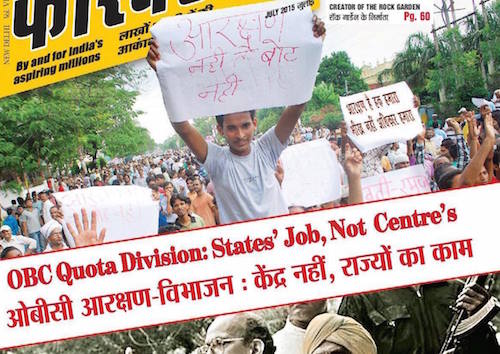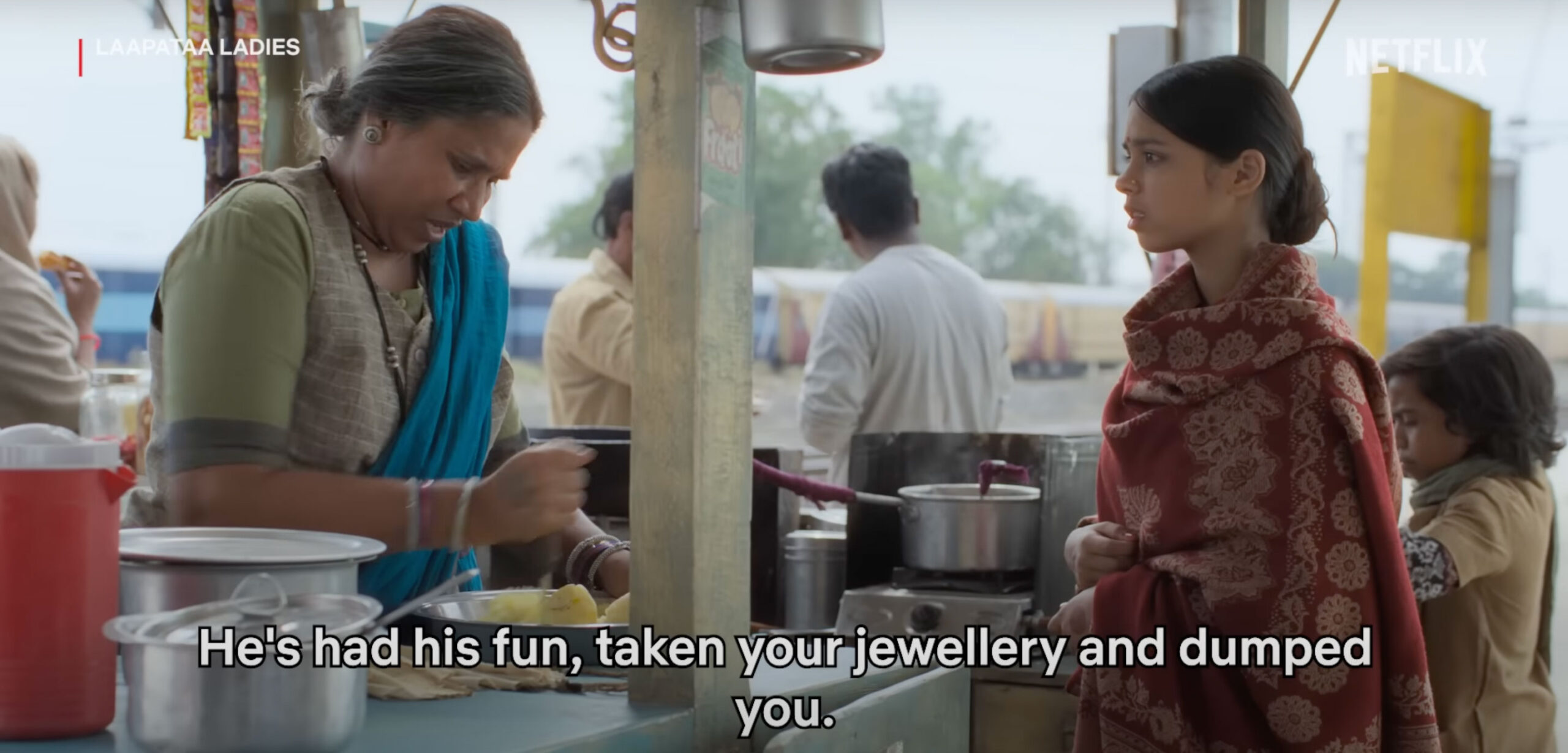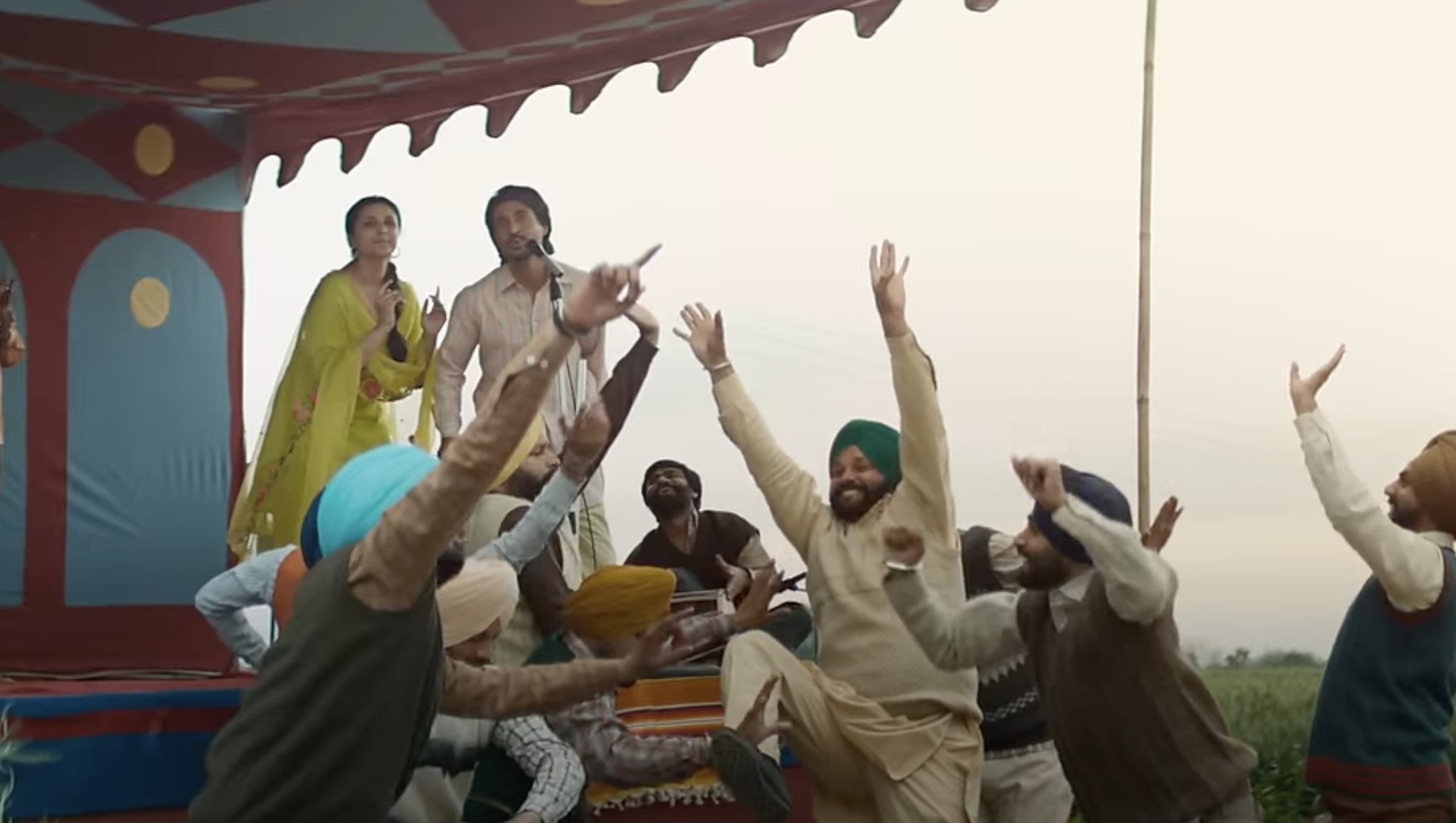 The 26th is a very significant date in the history of social justice in India. This issue goes to press around 26 June, Chatrapati Shahu Maharaj’s birth anniversary. A disciple of Mahatma Jotiba Phule, who first proposed reservations in 1869 and 1882, he was the one who introduced reservations in his kingdom of Kolhapur on 26 July 1902. He was one of the royal patrons of Ambedkar’s education and social activism. Ambedkar’s Indian constitution with the guarantees of reservations for the Scheduled Castes and Scheduled Tribes came into effect on 26 January 1950. 26 July is and should be observed as Reservations Day. So it is fitting that this issue of FORWARD Press is a Social Justice special.
The 26th is a very significant date in the history of social justice in India. This issue goes to press around 26 June, Chatrapati Shahu Maharaj’s birth anniversary. A disciple of Mahatma Jotiba Phule, who first proposed reservations in 1869 and 1882, he was the one who introduced reservations in his kingdom of Kolhapur on 26 July 1902. He was one of the royal patrons of Ambedkar’s education and social activism. Ambedkar’s Indian constitution with the guarantees of reservations for the Scheduled Castes and Scheduled Tribes came into effect on 26 January 1950. 26 July is and should be observed as Reservations Day. So it is fitting that this issue of FORWARD Press is a Social Justice special.
After being largely ignored by the Congress, the OBCs backed the OBC Modi-led BJP, believing that the promises of “ache din” were for the majority Dalitbahujans in particular. Now, after a year in office and in the run-up to the Bihar elections, the Modi sarkar is flying the kite of dividing the 27 per cent OBC reservations into sub-quotas, like some states have successfully done. When you fly a kite you can test which way the wind is blowing.
Our Cover Story should tell the Modi government that should they decide to proceed in this direction it will be sailing against the wind of both OBC opinion and common sense. As Ashok Yadav argues so rationally and convincingly, while informed OBCs agree that the objectives are desirable, it is best left to the states to plan and implement. If the Centre meddles in this matter it will create more problems than it will solve. On the flip side, Anoop Patel examines in detail the recent history of the Gurjar demand for special or separate OBC sub-quota for them in Rajasthan, now under BJP rule. The moral in these tangled cases of OBC reservations: There are appropriate times for the Centre to get involved and others for it to stay out and let the states handle these delicate issues. Some states are models in this regard: Tamil Nadu and Bihar.
Well-known Supreme Court jurist and campaigner for justice for women, Arvind Jain forays into the arena of caste, religion and reservations. In summary he says, “… the archaic laws, flawed judicial interpretations and the lack of political will – all of which have hindered social justice in the past – remain.”
Bihar, with its upcoming assembly elections, is of course going to be grabbing headlines. However, FP goes behind the headlines, particularly on the third death anniversary of the still-unsolved murder of Brahmeshwar Mukhiya. The July 2012 FP carried a Cover Story titled “Whose ‘Magic Bullets’ Murdered ‘Butcher of Bihar’?”. The questions we raised then have yet to be answered. Now Bihar’s politicians and the Hindi press have conspired to anoint mass-murderer Mukhiya as a martyr! Former FP staffer, Nawal Kishore Kumar, who had written the Mukhiya Cover Story in 2012, returns to report on the “hall of shame” list of politicians who pandered to this Bhumihar hero. Consulting Editor Pramod Ranjan, who has studied the social composition of the press in Bihar, does a thorough content and placement analysis of the Bihar Hindi press’ reporting on this event. Be warned: Whichever politicians or parties align with Mukhiya’s ghost to win the Bhumihar vote will have blood on their hands – the blood of at least 300 Dalitbahujan children, women and men.
Until next month … Truthfully,
Ivan Kostka
PS: Check us out on www.forwardpress.in Looking forward to meeting you in cyberspace – in English and in Hindi.
Published in the July 2015 issue of the FORWARD Press magazine





